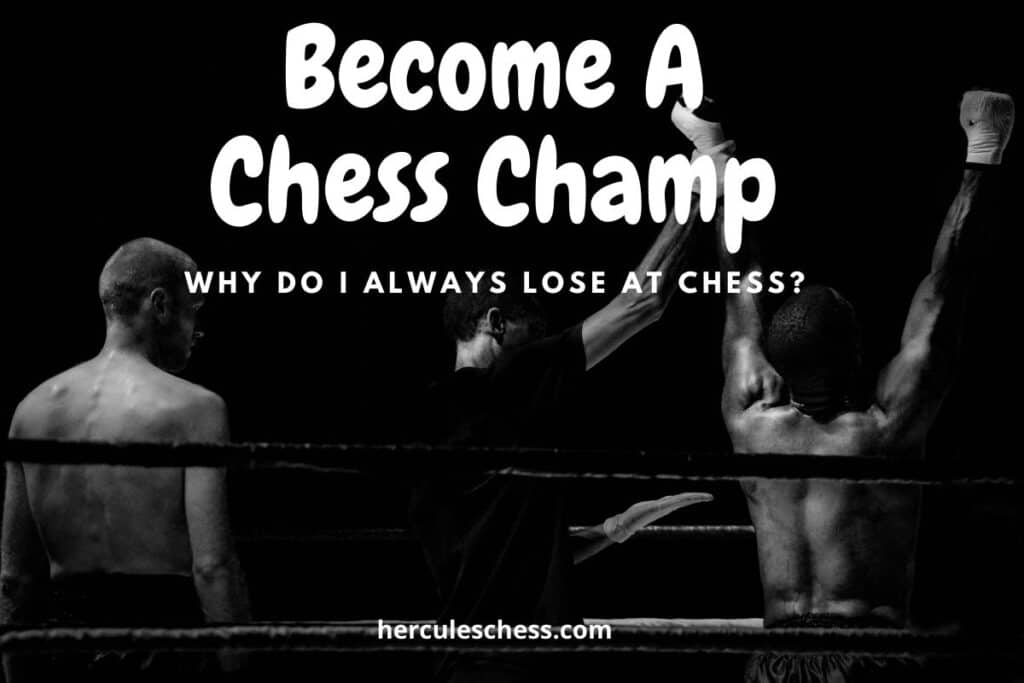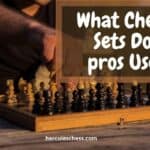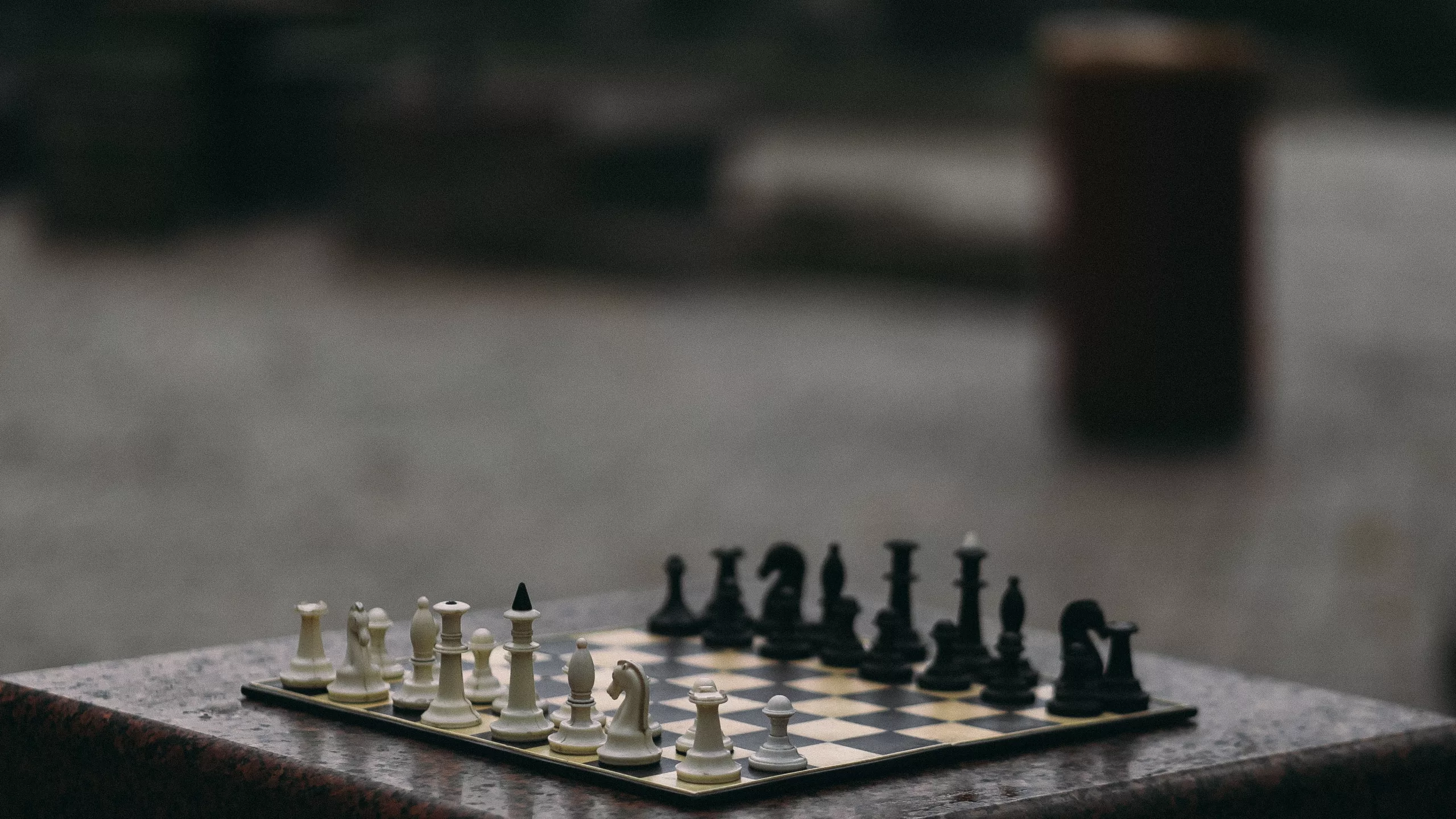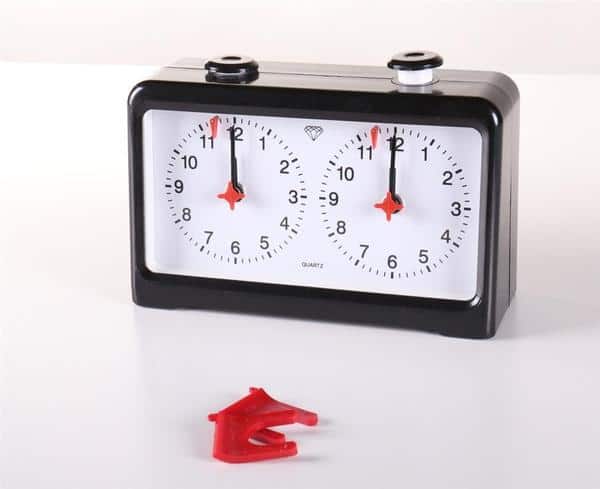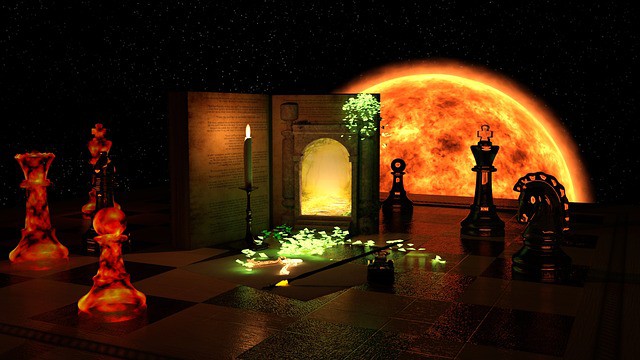Losing a chess match can be the worst feeling ever, especially if you take the game seriously and have been trying to improve. Some professional players actually NEVER recover from their defeat and they just put away chess for good. I implore you NOT to be one of those losers.
We all have losing streaks in chess that makes us feel sad and discouraged from playing the game. I assume you are here because you felt bad about the results you are seeing in your games. DON’T SWEAT IT, even the World Champion Magnus Carlsen has suffered back to back defeats at some point in his career. No matter how strong you think you are, you will inevitably suffer defeat in the game of chess.
But it’s not the defeat that really matters. It’s the way you look at it.
You can view a loss as the greatest failure in your entire life, one which you can never recover from,
OR
you can use this failure as a means to improve and acquire the knowledge and skills needed to win the next time around.
…So which one are you?
Are you a WINNER or are you a quitter?
If you said you are a quitter then you can close this tab and stop reading this post because you’ll never succeed at chess.
10 Reasons You’ll Always Lose At Chess
1. You Just Closed This Tab
2. You Don’t Analyse Your Chess Games
This is probably the biggest reason why most people don’t progress in chess. They simply don’t take the time to learn from their mistakes. I’m not talking where you turn on the engine and let the computer decide where you went wrong. No, you actually don’t learn that way. What I mean is a thorough breakdown of all the moves you played from start to finish.
The best way to analyse your chess games is to WRITE IT DOWN. Yes, explain every move in detail for both sides as if you are an author writing a book. If you have to hire a coach to explain why the computer recommended such move, then I encourage you to do so. A lot of players rely too much on the engine and so when it’s time for them to come out of the opening phase, they don’t know what to do because they have been using stockfish as their holy grail. Stockfish will never tell you why it plays what it plays because it doesn’t know positional chess.
Take a FREE 30 minute lesson on “How To Analyze Your Chess Games” by Grandmaster Igor Smirnov
3. You Still Don’t Know The General Principles
This isn’t just an issue at the beginner level, even professional players still don’t obey the general principles of chess. If you obey these 5 principles that I’m about to tell you, you can easily surpass 70% of players. These are the exact principles that I learned from my chess coach(GM Igor Smirnov) that have allowed me to go from a 1400 player to over 2000 elo points in just 15 months:
i) Principle of the Least Active Piece
Look at all your pieces on the board and begin to start asking yourself “Which ones are just sitting there doing nothing?” Sometimes we can be too busy with other unimportant issues that we forget to pay attention to what really matters the most, and that is, “The ACTIVITY of ALL our pieces”.
This principle simply tells us that we should look for the pieces that are least active in our position and bring them into the game. Sometimes we try to carry out an attack against our opponent’s army, but it simply fails because we don’t have enough pieces joining the attack. When all your pieces are developed on their most natural squares and your opponent is lagging in development, it is far easier to succeed at an attack. This leads us to our next principle…
ii.) Principle of Attack
This principle states that we should attack on our every move when given the chance. I’ve seen far many games when one side has an advantage in development, but they fail to get an attack going because they are too timid to take the initiative. They just start playing passive moves until their opponent equalizes the position. DON’T DO THIS. Whenever you’ve finished development before your opponent, you must always look for a plan to attack your opponent.
…If you don’t, your opponent will attack you, and you’ll never get back that opportunity. Click here to learn how to attack in chess
iii.) Principle of the Center
This Principle is clear, PLAY IN THE CENTER. Usually in the opening, if you place your pawns in the center, you are opening lines for your pieces and you gain more control over the board. Not only do you gain more activity when you play in the center, you also limit your opponent’s activity. Their chances for development are far less because it will be harder for their pieces to go on their most natural squares.
Also, whenever your opponent tries to attack you along the flanks, the first thing to do is to look for a way to counter in the center. Understand that play in the center is more powerful than a wing attack.
Keynote: An attack along the flanks should be met with play in the center.
iv.)Principle of Maximum activity
The maximum activity of a chess piece is the largest number of squares it can control on the chessboard. A piece with maximum activity is usually seen far up into enemy territory. For example a knight, on the 6th rank is controlling a greater number of squares than it is on the 1st 2nd or 3rd rank. Therefore, to achieve maximum activity, we should find a way to get our pieces as far up the board as possible, whether that means bravely marching into enemy camp.
v.) Stop Your Opponent’s Plans
Never be too caught up in your own plans, that you forget about your opponent’s. Sometimes all it requires for you to do in a position is to stop your opponent’s plans in its tracks. Your chances of succeeding is far greater since your opponent will have no counter play, he will just have to wait and see what happens. Most grandmasters use this technique to slowly outplay their opponent. They know that it’s the small positional advantages that counts. And when each of the advantages add up, they can convert it into a win. Click here to learn more about planning in chess
4. You Play With Too Many Amateurs
The next reason why you lose at chess is that you play with too many inexperienced players, so when the time comes for you to play with a real expert, you melt away in defeat. This doesn’t just relate to chess, it applies to all areas of life. If you want to become successful at anything, you have to be around successful people, those who’ve already achieved your goal.
You are not raising the bar when you play against a low rated beginner player. If you are rated 1400, try playing against a 2200 player. Chances are you will lose miserably. But it allows you to step up your game and compete to the best of your ability. Similarly, If you are rated 2000, you should try playing with a 2500 grandmaster. When we raise our standards, we tend to perform higher and that is what I want you to do the next time you set out to play chess.
5. You Haven’t Been Playing Enough Classical Chess
Can you recall the last time you play chess with a time control of 90 minutes? If you can’t, then perhaps you need to start playing more classical chess games. Classical chess games will give you enough time to study the position and come up with a suitable plan. If you are playing with a time control of 10 minutes on the clock, you just wont have enough time to analyse and play properly. My recommendations is that you take 3 minutes to think before making each move. You might have a great move in mind and you can’t wait to play it, but probably you were so excited that you missed something very crucial that cost you the game. The moral here is to give yourself enough time to think. This leads us to our next point…
6. You Play Way Too Many Blitz Games
Blitz games are actually what makes chess really fun, and the thrill of competing with the clock can get one excited. But we should be careful. Too many blitz games can actually lower our chess Iq. When we play blitz we often don’t think correctly because of time pressure, and that can be bad for us if we want to improve in chess. You will hardly learn anything from a 3 minute game because more often they are filled with too many blunders. I only recommend Blitz games when you’ve learned a new opening and you want to practice it a few times. Or, you could use blitz games to train your mental agility. But when it comes to serious chess development and improving on your thought process, you should NOT play blitz.
7. You Haven’t Developed A Proper Thinking System
Do you know what differentiates a grandmaster from the rest of chess players?
…No, it’s not some natural ability their born with.
It’s not even about putting in the ‘hard work’.
The very thing that separates a grandmaster from the massive is their “Thought Process”. Every grandmaster has one! And you can too.
A thought process in chess is a “proper system of thinking” that grandmasters use everytime to come up with a feasible plan and to make the right moves.
You have to check out my latest post on How to think like a grandmaster? It lays out the most common approach grandmasters use to find the best moves in a given position. I won’t promise you that after learning this system of thinking that you will end up a grandmaster, but what I can tell you is that it has helped me and much other students achieve wins after wins after wins just by following a step by step blueprint handed over to me by my coach.
8. You Give Up Too Soon (i.e Lack of Resilience)
Chess is a game where the tables can turn in the blink of an eye. I’ve seen many games where one side was up a whole queen but lost due to complacency. I’ve also witnessed positions that seemed completely hopeless for one player, but because of their persistence and fighting spirit they managed to pull off a draw. The moral here is to NEVER GIVE UP even if the position calls for resignation.
I know how difficult it might be sometimes to sit at a chair for hours. But this is where resilience sets in. This is the deciding moment that separates the champion from the weakling. Most people’s concentration will lapse and they will begin to fade away after a hour has passed. Don’t let that be you. Stay at the board and finish the game!
Final Verdict – Why Do I Always Lose At Chess?
I hope you took away something from this article. Everyone hates losing games. Strangely enough, many chess players think that playing a lot of games is the only way to get better at chess. While there is some truth in that, there are still many players that play for years and don’t improve. Luckily for you, that won’t happen. These 7 to 8 reasons plus the courses I’ve given you should set you on the right path to chess improvement and winning more games.
